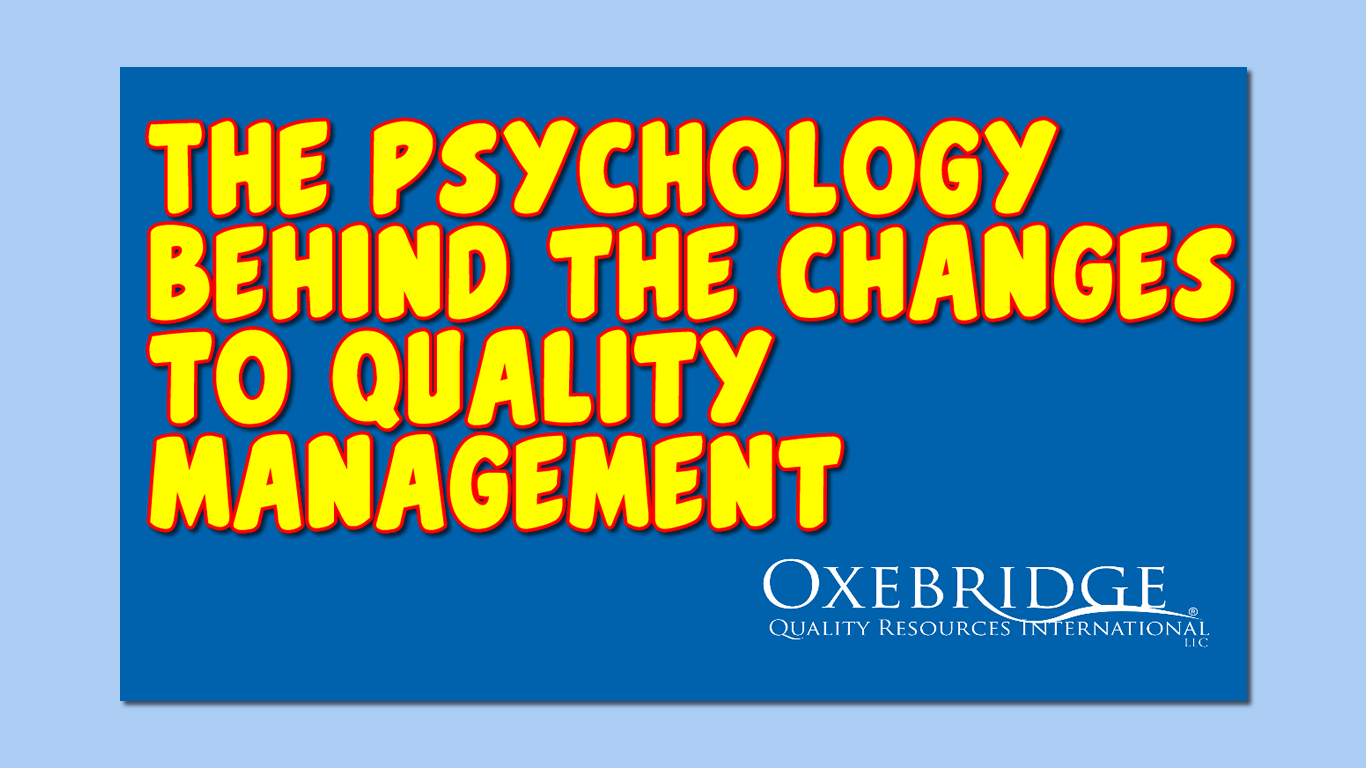There is much cynical, if nevertheless true, discussion about the decline of ISO 9001’s impact, usefulness, merits, etc. We’ve seen a lot of comments about how ISO 9001 hasn’t achieved what it intended, and how it doesn’t necessarily result in an improved QMS.
 But the experiences of the emerging nations have something to remind us of, and possibly teach us. I am speaking almost primarily of South America, where I spend half my year, but I suspect much of this may reflect in the countries of Asia that are equally new to ISO 9001.
But the experiences of the emerging nations have something to remind us of, and possibly teach us. I am speaking almost primarily of South America, where I spend half my year, but I suspect much of this may reflect in the countries of Asia that are equally new to ISO 9001.
1.) First, there is a greater awareness of ISO 9001 at the consumer level. Rather than ISO 9001 being driven by mandates from customers, companies adopt ISO 9001 to prove to the public and consumers that their company has a good QMS. There is some street-level confusion about what ISO 9001 is (a QMS cert vs. a product cert) but this should get corrected over time.
2.) Companies in these nations are seeing better improvements. Because they are not going into ISO 9001 “kicking and screaming” in order to meet a mandate, they are more likely to
take it seriously, and to use it to improve. Executive managers are more likely to be better trained on ISO 9001 than their Western counterparts, because they don’t have the resources to offload the ISO work to high-paid consultants.
3.) These nations need to do it. Their quality is notoriously poor, because of a lack of technology and resources, and they identify ISO 9001 as a way to boost their quality with a proven method that simultaneously carries international panache. ISO 9001 isn’t just a cert on the wall, it’s a survival tactic.
4.) Self loathing — despite lots of national pride, there is nevertheless an unspoken subtext of self-loathing that drives companies and managers to get past their “undeveloped country” label. They want to compete on the world stage, and are often embarrassed that aren’t there already. This usually reveals itself as anger against their particular governments, but it also bubbles up into personal relations, or market position. Rightly or wrongly, some of these companies look to the Western counterparts as shining examples; their view is romanticized, but it acts as fuel. Ironically, they have no idea that very notion will likely lead them to quickly overtake the Western companies they are idolizing.
 5) They expect real results beyond the cert on the wall. They want to see real improvements in processes and the resulting product. No excuses.
5) They expect real results beyond the cert on the wall. They want to see real improvements in processes and the resulting product. No excuses.
6.) They market the heck out of their certifications, which keeps the public awareness going. Billboards, flags, newspaper ads. My dentist in Lima has a 3D machined SGS logo on their building that is the size of my head, and it sits facing the road, so everyone sees it.
We can debate why ISO 9001’s halo is dimming in the early adopter nations, but for these emerging economies, it’s a new Golden Age for ISO 9001.
Christopher Paris is the founder and VP Operations of Oxebridge. He has over 35 years’ experience implementing ISO 9001 and AS9100 systems, and helps establish certification and accreditation bodies with the ISO 17000 series. He is a vocal advocate for the development and use of standards from the point of view of actual users. He is the writer and artist of THE AUDITOR comic strip, and is currently writing the DR. CUBA pulp novel series. Visit www.drcuba.world







